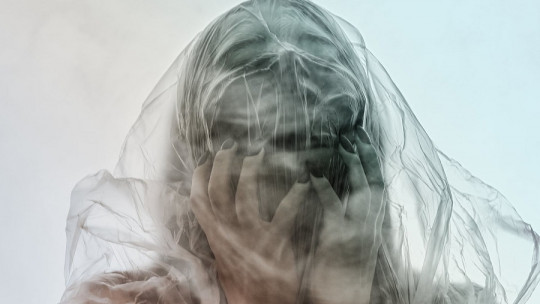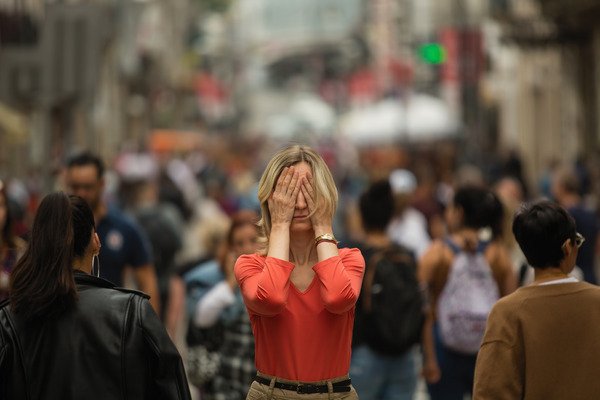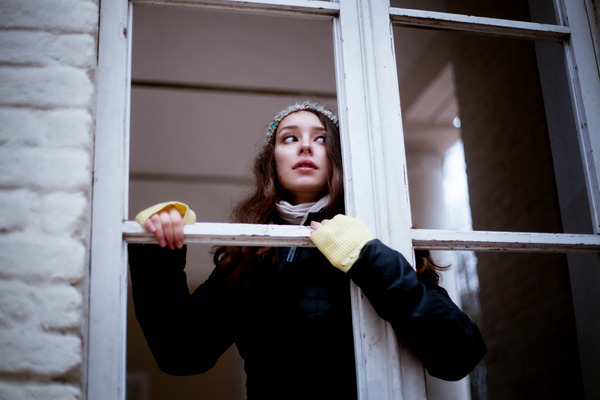What does agoraphobia entail? Agoraphobia is the fear of exposing yourself to situations where it is difficult to escape or get help. Discover how to detect it and how to overcome agoraphobia.
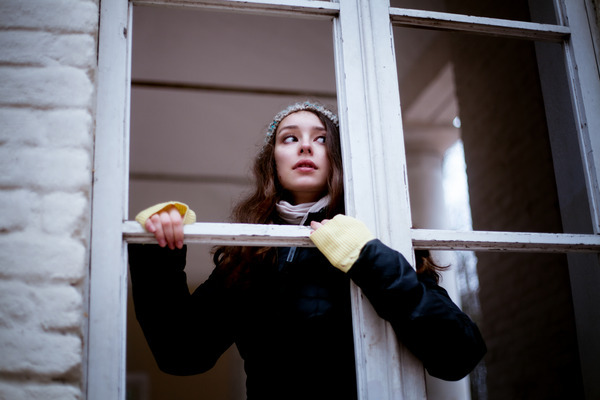
There are some situations in which some people stay at home for fear of what may happen outside of them. In these cases, the fear of leaving home It can be called agoraphobia and it is a phobia of the lack of control towards some situations in which it is difficult for us to escape. In this way, agoraphobia can restrict our lives through fear of people, fear of the new, and even fear of everything. Discover why agoraphobia arises, its causes and how to leave the phobia of leaving the house behind.
What is agoraphobia?
The agoraphobia It is a type of anxiety disorder that is mainly characterized by trying to avoid those situations that can cause very intense fear and panic in the person who suffers from it. Agoraphobia and its literal meaning derives from the Greek word ‘agora’ Which is equivalent to ‘meeting place‘ either ‘open space‘, and from the English word ‘phobia‘ equivalent to ‘fear‘ in our language.
Therefore, agoraphobia involves the discomfort of those who suffer from going to unknown places as well as the fear of going out on the street due to the phobia of certain areas that may be crowded with people. It is for this reason that agoraphobia involves other fears such as the following:
- Fear of crowds
- Fear of the new
- Fear of people
- Fear of leaving home
- Fear of going out on the streets
- Fear of going out at night
On some occasions we could say that agoraphobia implies a fear of everything that is unknown or the lack of control in a new situation. Thus, people who tend not to want to leave the house for this reason may be due to the panic caused by having an anxiety attack in a public place. Therefore, this phobia of people or open spaces It can feed off and end up being very harmful to the person who suffers from it.
The avoidance behaviors involved in fear of going out on the street They vary from person to person who suffers from agoraphobia. But the main characteristic of this phobia of open spaces or fear of crowds is the limitation that it causes in the life of the person who suffers from it. In addition, there are even cases in which agoraphobia can be so extreme that individuals may not leave the house on any occasion.
Agoraphobia: Symptoms
Main symptoms of agoraphobia They can be very visible to the people who are next to the sufferer. Even so, on many occasions they can go unnoticed, since they can be confused with a person’s degree of introversion.
- Fear of leaving home: One of the main signs is that the person avoids any occasion in which they should homebound To be able to safely detect this symptom, you must have a lot of perseverance over a long period of time.
- Fear of open spaces: A person who avoids open spaces at all costs, whatever they may be, may be suffering from agoraphobia In these cases, the person may make an excuse to try to prevent it from being known that they suffer from anxiety and fear of those situations.
- Fear of people (avoids social situations): Agoraphobia also involves a certain degree of social anxiety. In many cases the person suffers from fear of people and more specifically, fear of crowds. The reason for this is that you cannot control the reactions of other people and this can generate a type of anxiety or panic in these situations.
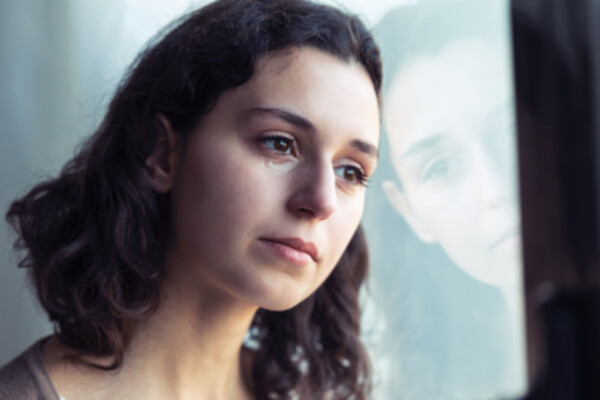
- Fear of fear: Although it may sound paradoxical, the fear of the new or this phobia of people It may be due to being afraid of losing control in a public place due to a panic attack suffered by agoraphobia.
- Fear public places: He meaning of agoraphobia It also translates into fear of those places that involve meeting other people and therefore requires leaving our comfort zone.
- Anxiety attacks: The panic attacks or an anxiety attack They can often indicate the onset of agoraphobia. In many cases the person may become afraid of suffering them in public and end up suffering from agoraphobia.
The agoraphobia and its symptoms They can make a person feel very limited in various aspects of their life. If you think you have many of these signs, it is important that you start treating this illness either through inner work or by consulting a mental health professional.
Agoraphobia: Causes of fear
Although the causes behind the agoraphobia, the reality is that there are several risk factors that can increase the risk that a person ends up suffering from this fear of leaving home or of crowds, among others. Psychologists highlight the following.
- Anxiety: When you suffer from an anxiety disorder, it is very likely that it can lead to agoraphobia. The phobia of people It is also characteristic of social anxiety.
- Suffer from other phobias: On some occasions the causes of agoraphobia They can lead to other phobias that have not been detected or treated.
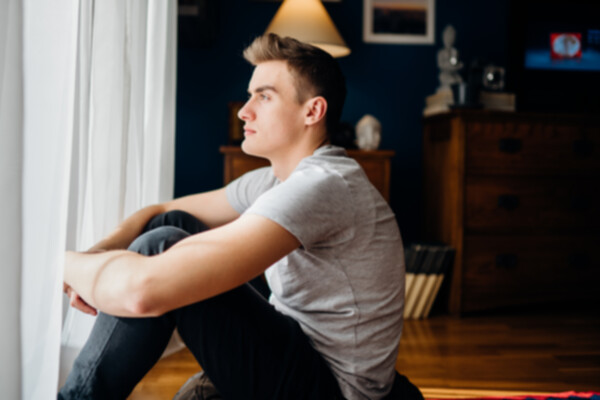
- Family background: People who have agoraphobia or suffer from a fear of crowds or fear of leaving the street It may be because a family member also suffers from it.
- Abuse or trauma: Trauma or traumatic experiences can also be a cause of agoraphobia. In these cases the fear of people develops due to this traumatic event.
These are the main causes why people can have fear of leaving home or of crowds Despite this, there may be other reasons why a person develops agoraphobia.
How to overcome agoraphobia?
The moment you detect that you are being sufferer of agoraphobia, it is vital to start treating this disease. According to psychologists, you can follow the following instructions to overcome it.
- Learn relaxation techniques: Relaxation techniques are self-help strategies that can help us relieve each of the symptoms related to an anxiety attack or phobias. Thanks to this, people can overcome the fear of going out or the phobia of people which is experienced due to agoraphobia. This is because these techniques allow us to relax the tension in the body and the nervousness that comes from our mind.
- Desensitization: This coping technique involves using our imagination to overcome those factors that trigger anxiety. phobia of crowds or to leave the house. To do this, you must visualize yourself in certain anxiety-provoking situations while you learn to relax through feelings of apprehension. By learning to relax through imagination, you can gradually overcome your agoraphobia.
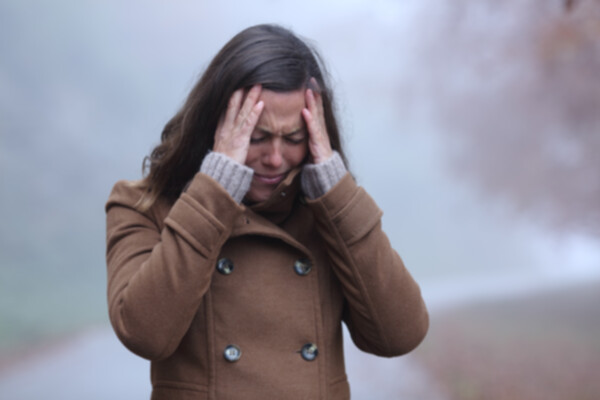
- Reduces stress: Sometimes stress is a very relevant source that can lead to an anxiety attack. So much so that in many cases stress contributes to developing various physical and mental health problems. In this way, if you reduce stress it is very possible that you can confront agoraphobia with much more willpower.
- Personal care: Personal well-being goes hand in hand with dedicating a moment a day to yourself and not to your daily tasks. To obtain overcome agoraphobia and its symptoms You should try to relax and leave space in your life for yourself. Start exercising more, get involved in your hobbies and dedicate more time to yours. All of this will allow you to better cope with your agoraphobia.
- Go to a psychologist: Sometimes, going to a psychologist can be the best tool to change the most negative attitudes in our lives. Thanks to professional advice you will be able to learn many of the keys to stop being afraid of leaving your house and face those situations over which you cannot assume control.
The agoraphobia It significantly alters a person’s life, since it determines what they do and what they avoid. In this way, you are subject and conditioned to the anxious symptoms that agoraphobia entails, being at its mercy. They have their hands tied, feeling like they are not in control of their lives or their bodies.


